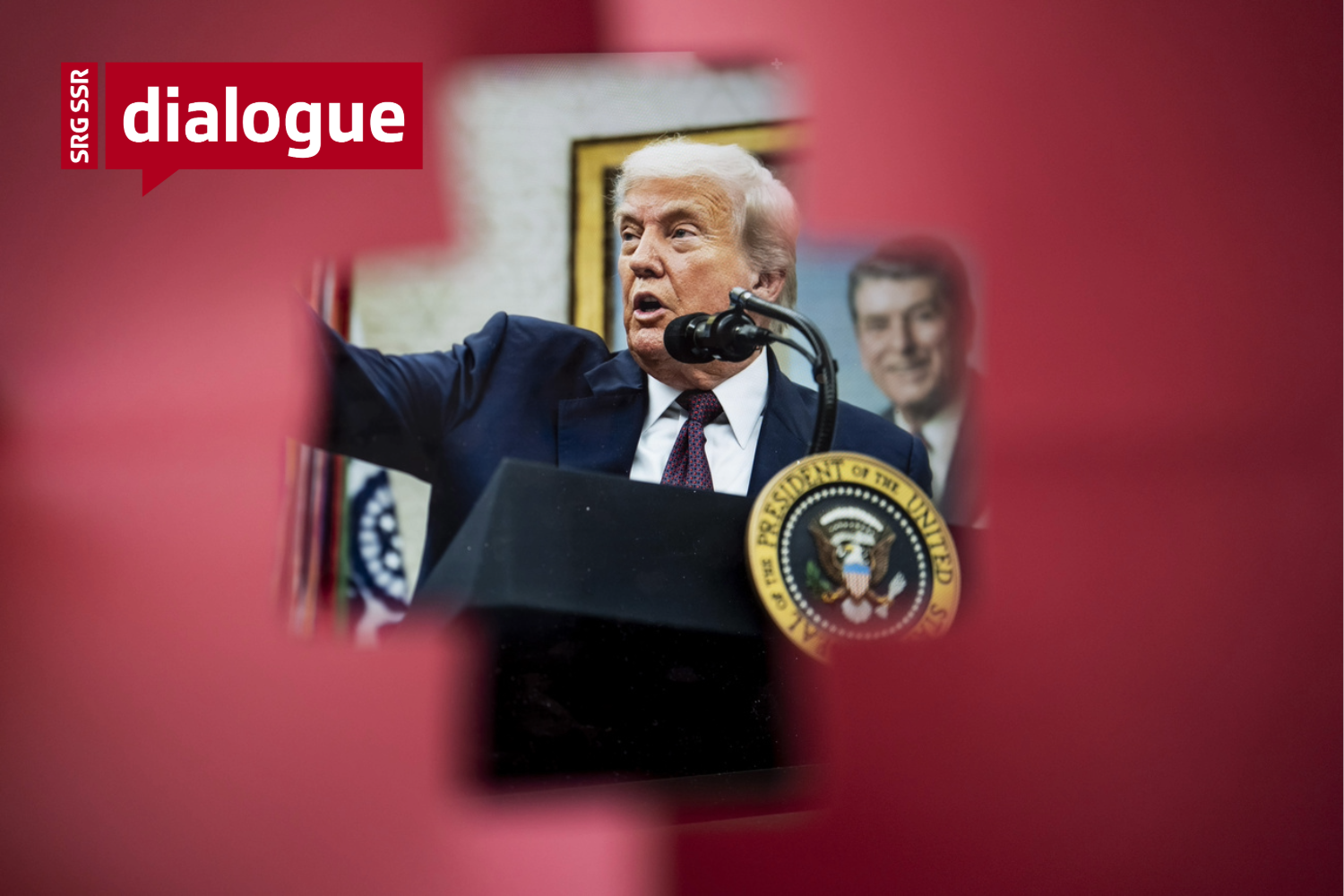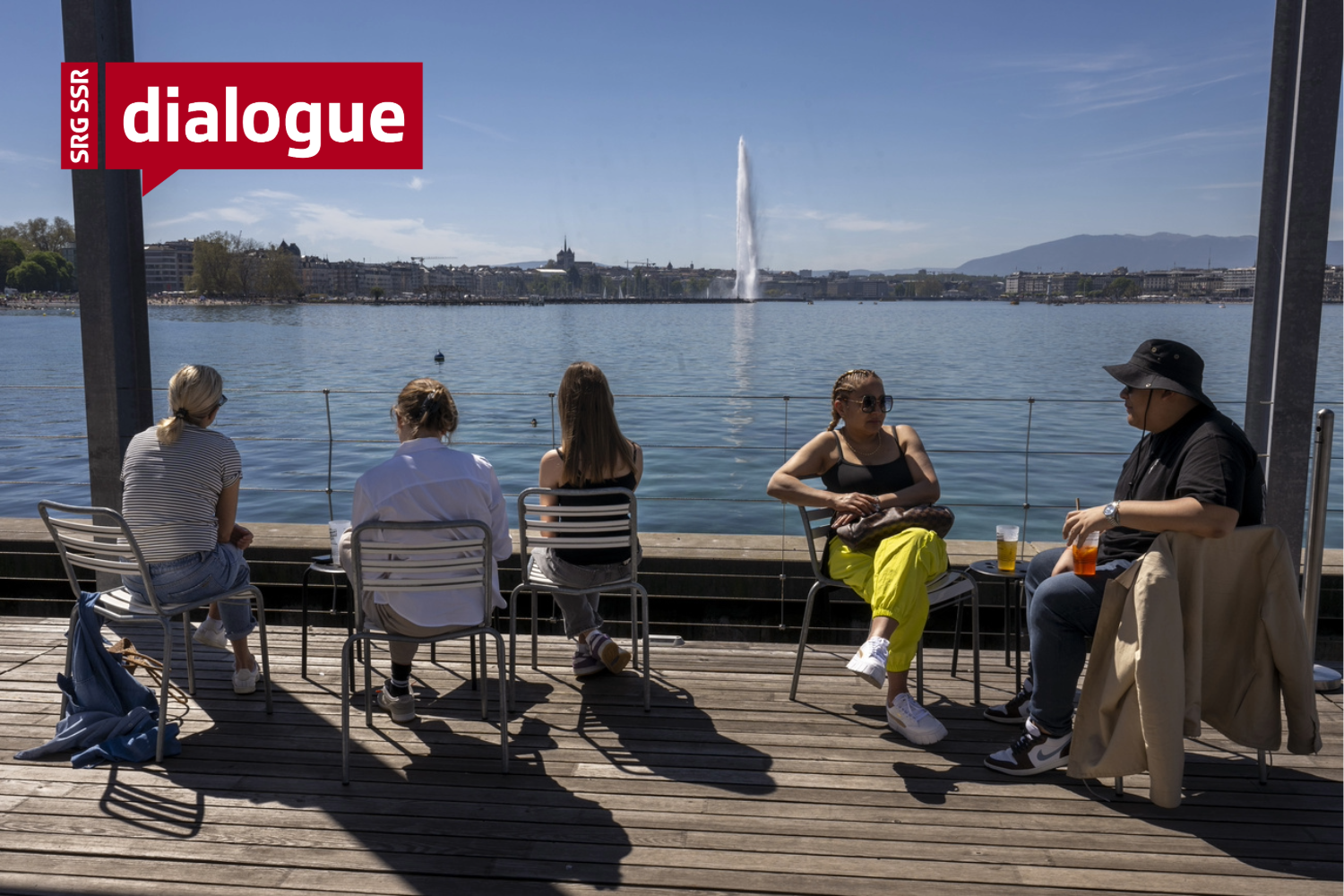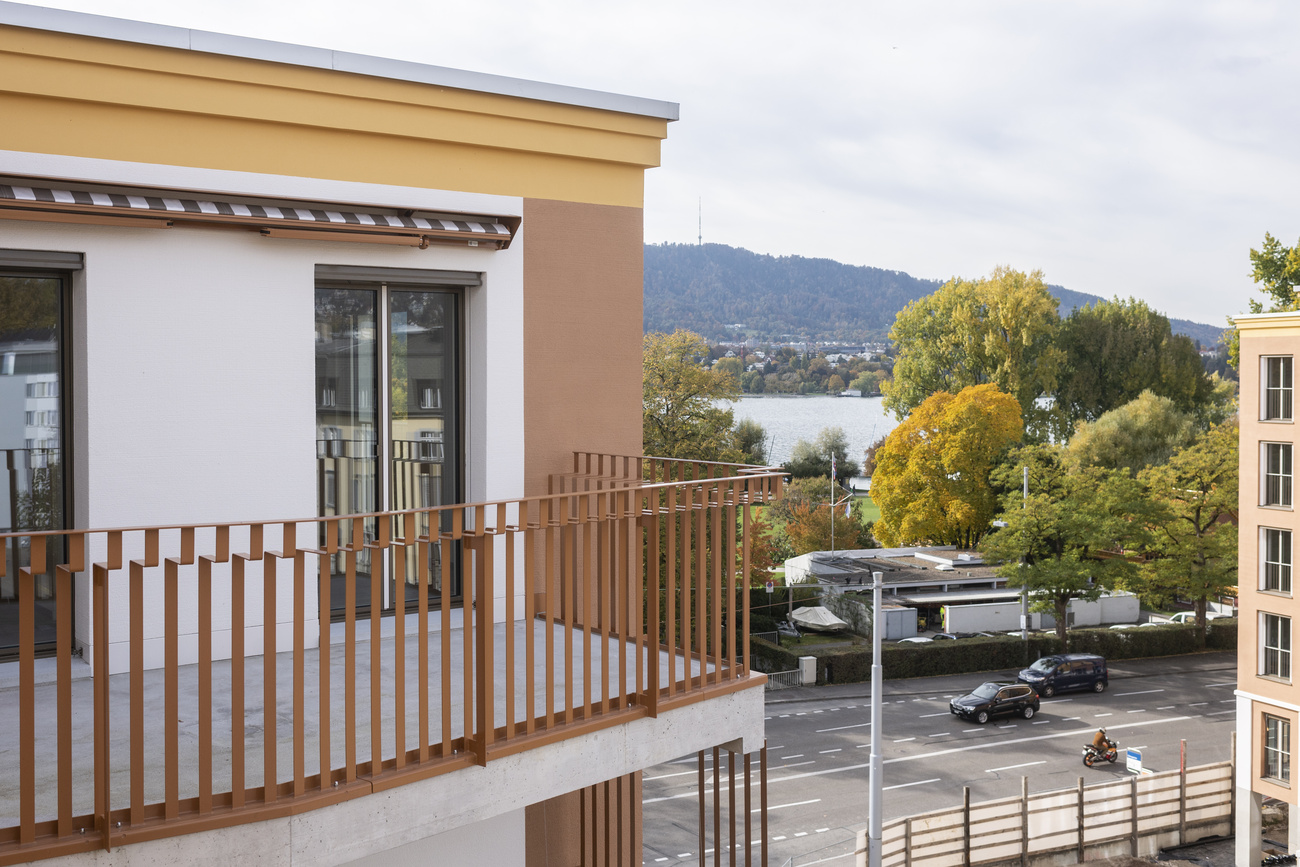
Swiss worried by world under Trump, says poll

In just a few months, US President Donald Trump has shaken up the global economic and political order, weakening the balance on which Switzerland has based part of its prosperity. The population is worried about the return of the law of the strongest and wants to see a firmer stance taken by the authorities, according to an SBC opinion poll published on Thursday.
Since 2023, the major survey “How are you, Switzerland?”, launched by the Swiss Broadcasting Corporation (SBC), Swissinfo’s parent company, has been examining the fears and aspirations of the people living in Switzerland and the Swiss Abroad. This year, for the first time, an entire section of the poll was devoted to Switzerland’s position in the world.
The results, published on Thursday, show that the global political, geopolitical and economic shift initiated by Trump is leaving its mark on public opinion.
Switzerland is well positioned but lacks influence
Despite this considerable upheaval, the vast majority of respondents perceive Switzerland as being well positioned in international comparison. This in many areas, including political stability, education and research, freedom and innovation. The only negative point: the country’s influence on the international stage. Barely a third of the respondents consider it rather good or very good.

More
Switzerland’s mood barometer reveals high satisfaction but cracks in unity
For nearly 60% of the respondents, the country’s global influence is rather poor, or even very poor. It should be noted that the survey was conducted after Trump’s threat to impose tariffs in April but before the decision in August to impose tariffs of up to 39% on Swiss products. Switzerland is among the most heavily taxed countries, well above other Western countries, and notably the European Union.
This feeling of Switzerland’s decline in terms of influence is reflected in widespread public concern over the return of the law of the strongest in global politics. Nearly four out of five people surveyed believe that this issue will concern them greatly (46.7%) or considerably (32.2%) over the coming years. The concern is particularly pronounced among senior citizens (88.2%) and women (82%).
Switzerland must hold its ground against American and Chinese giants
Since Donald Trump’s return to power in 2025, many long-standing certainties, such as a rules-based world order or international trade based on free trade, have been called into question. “This is a structural problem for Switzerland, which must find its place again and reorganise its relations. The population feels this, and it’s causing insecurity,” says Urs Bieri, co-director of the research institute gfs.bern.
In this context, an overwhelming majority of the population expects the authorities to ensure that Swiss companies benefit from the best possible conditions on global markets. Among the proposals presented to respondents, this was the one that received most approval.
At the same time, more than 80% of the respondents believe that Switzerland should adopt a more assertive stance towards the two major powers, the United States and China. Perhaps a sign of the disenchantment between Switzerland and Trump’s America, more than 60% of the population also favours intensifying cooperation with the EU, on a solid contractual basis.
When asked about Switzerland’s role in the world, the vast majority of the respondents is in favour of the concept of active neutrality. More than 80% want the country to remain neutral while acting as a mediator in global conflicts. Three out of four people believe that Switzerland should continue its humanitarian tradition and strive to build bridges between countries and cultures.
However, a significant minority of the population is tempted to withdraw. Nearly 40% of those surveyed want Switzerland to focus on itself and stay as far away from international politics as possible. “It is a notable fact that a majority believes we need to find new friends, while a minority wants nothing more to do with the rest of the world,” says Urs Bieri from gfs.bern.
Another finding from the survey: far from letting other countries take the lead in the fight against climate change, more than two-thirds of respondents want Switzerland to be a pioneer in environmental and climate protection. There is a significant difference between the genders on this issue, with women (76%) being significantly more proactive than men (60%).
Will Donald Trump influence the discussions about the EU?
The desire for closer ties with the European Union comes a few months after the government approved the package of agreements between Switzerland and the EU, the result of long and difficult negotiations between Bern and Brussels. Currently under consultation, these texts are expected to be put to a popular vote in 2027 or 2028.
Asked about this subject, Urs Bieri warns against over-interpreting the poll results: the survey focused only on Switzerland’s relations with the EU in general. No questions were asked specifically about the package of agreements concluded with Brussels, he adds.
However, the new US administration’s policy could weigh on the vote, while a fierce campaign and an extremely emotional vote are already expected, comparable to the vote on the European Economic Area (EEA) in 1992.
What is your opinion? Join the debate:
The results of “How are you, Switzerland?” are based on a representative survey of 55,006 Swiss residents and Swiss Abroad. It was conducted by the research institute gfs.bern from May 12 to June 15, 2025, on behalf of the SBC. This is the third time within three years that this survey has been carried out. Compared to the versions of previous years, some of the questions were new or different, but most were identical.
In all, 3,000 respondents were selected from an online panel by gfs.bern in order to obtain a representative sample of the Swiss population (16 years and older). The sample was stratified according to language regions and proportioned according to age and gender.
The other respondents completed the questionnaire online. They were invited to do so via the SBC channels but decided for themselves whether they wanted to participate. This survey method is not representative. Representativeness is achieved by means of specific data weighting and data validation procedures.
The sampling error is +/- 1.8% at 50:50 and 95% probability.
Translated from French by Claire Micallef/ts

In compliance with the JTI standards
More: SWI swissinfo.ch certified by the Journalism Trust Initiative




























You can find an overview of ongoing debates with our journalists here . Please join us!
If you want to start a conversation about a topic raised in this article or want to report factual errors, email us at english@swissinfo.ch.